.svg)
Agriculture - Gardening
Cinnamon ORG
Our organic cinnamon essential oil (bark, Cinnamomum verum syn. Cinnamomum zeylanicum) is distilled from carefully selected bark in Madagascar. Its warm, spicy, and sweet profile (rich in cinnamaldehyde) makes it a premium ingredient in perfumery, fragrant cosmetics and controlled aromatherapy. Quality and traceability are verified for each batch.
Note: For technical reasons, the vial used for the 1mL packaging has a capacity of approximately 4mL, so it is normal for it to appear about one-quarter full. The packaging is carried out using precise and calibrated laboratory equipment.

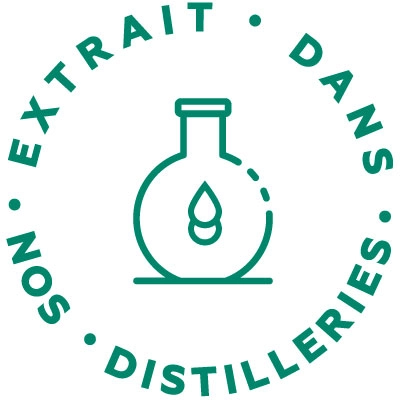
The cinnamon tree is native to the island of Ceylon (Sri Lanka). Its cultivation spread throughout the Indian Ocean as early as the 19th century, and Madagascar is now among the key origins for this prized spice. Our raw material is Cinnamomum verum, also known as Cinnamomum zeylanicum: two names for the same species, traditionally called “Ceylon cinnamon.”
Harvesting focuses on the inner bark of young shoots: after scoring, the bark is rolled into sticks (called “quills” in English), then dried and graded according to fineness and aroma. Milder and more refined than cassia-type cinnamons, this bark is particularly sought after for distilling cinnamon bark essential oil.
For our organic cinnamon essential oil, we work with a long-standing partner located in Madagascar, as close as possible to the plantations. The controlled, reproducible process follows the steps below:
Selection of bark lots (quills).
Sorting and controlled drying of the bark.
Steam distillation with duration adjusted to optimize cinnamaldehyde content.
Separation/decantation of the oil phase, fine filtration.
Analytical controls (chromatographic profile, density, refractive index) and batch-level traceability.
This bark-specific protocol (as opposed to leaf) gives the oil its characteristic spicy intensity and warmth.
Cinnamon bark essential oil brings a warm/spicy top and a sweet balsamic heart, evolving toward a vanilla-woody base. It is a pillar of the following families:
Oriental / ambery: with benzoin, labdanum, opoponax, vanilla, tonka bean.
Gourmand: pastry accords (praline, gingerbread); superb with sweet orange and mandarin.
Woody / leathery: interesting with cedar, patchouli, vetiver, birch.
In cosmetics, cinnamon bark essential oil is used as a fragrance at very low levels, preferably in rinse-off formulas (shower gels, perfumed soaps) or home-fragrance products. For leave-on applications, caution is essential (irritation risk):
Shower gels and soaps: impart a warm, comforting trail.
Fabric mists or home sprays.
Scented candles: a festive note, to pair with citrus and resins.
In a veterinary context, cinnamon essential oil should be considered only for ambient or hygiene uses.
Cinnamon is one of the olfactory icons of the festive season. In home care, it is used:
In atmospheric diffusion (very low dosages) to create a warm ambiance; pair with sweet orange and balsam fir.
In room sprays or fragranced cleaning solutions (surface compatibility tested).
In homemade candles: adds a spicy heart alongside citrus notes.
Always follow the dosage and directions for use, and air out rooms after use.
Cinnamon essential oil has a warm, spicy flavor, and can be used as an edible essential oil in cooking or in the creation of foodstuffs:
Typical combinations / effects:
The high cinnamaldehyde content gives a warm, spicy, sweet character that is very assertive on the nose.
Eugenol and β-caryophyllene add a balsamic / soft-spice facet in aromatic blends.
Cinnamyl acetate lends a gentle fruity sweetness to the whole.
Precautions: Dermocaustic and sensitizing when undiluted; must be diluted in an oily carrier. Avoid prolonged use.
| Botanical name : | Cinnamomum verum J.Presl (Syn : Cinnamomum zeylanicum Blume) |
| CAS EINECS : | 84649-98-9 |
| CAS TSCA : | 8015-91-6 |
| CE number : | 283-479-0 |
| COE : | 133 |
| Commercial designation : | Cinnamon Essential oil Madagascar ORG |
| Composition : | 100% pure, natural and integral. Chemotyped. |
| Country of harvest : | MADAGASCAR |
| Country of manufacturing : | MADAGASCAR |
| Declared domestic use : | Ingredient |
| FDA : | 182.20 |
| FEMA GRAS : | 2291 |
| Flash point (°C) : | 71 |
| INCI Cosing : | 100% CINNAMOMUM ZEYLANICUM BARK OIL |
| Internal reference : | B220 |
| Minimum shelf life (month) : | 36 |
| Part of the plant : | Bark |
| Product's Familly : | CINNAMON |
| Registered in food inventories : | Yes |
| Regulated sale : | Non |
| Transport Data Dangerous Goods : | 6.1/III/2810 |
| Type of extract : | Essential oil |
Nocif pour les organismes aquatiques, entraîne des effets néfastes à long terme.
| Harmful to aquatic life with long lasting effects. |
Provoque une sévère irritation des yeux.
Causes serious eye irritation.
Peut provoquer une allergie cutanée.
May cause an allergic skin reaction.
Provoque une irritation cutanée.
Causes skin irritation.
Toxique par contact cutané.
Toxic in contact with skin.
Peut être mortel en cas d'ingestion et de pénétration dans les voies respiratoires.
May be fatal if swallowed and enters airways.



Ingrédient parfumant. Teneur maximale: 0,018% de la composition finale. Ne pas ingérer ni appliquer pur sur la peau. Tenir hors de portée des enfants. Ne pas utiliser pour les enfants de moins de 7 ans, les femmes enceintes et allaitantes, les personnes ayant des antécédents de troubles épileptiques ou convulsifs ainsi que chez les personnes allergiques aux huiles essentielles et extraits de plantes.
Consult our guides: storage and preservation methods and precautions for use
Our organic cinnamon essential oil (bark, Cinnamomum verum syn. Cinnamomum zeylanicum) is distilled from carefully selected bark in Madagascar. Its warm, spicy, and sweet profile (rich in cinnamaldehyde) makes it a premium ingredient in perfumery, fragrant cosmetics and controlled aromatherapy. Quality and traceability are verified for each batch.
Note: For technical reasons, the vial used for the 1mL packaging has a capacity of approximately 4mL, so it is normal for it to appear about one-quarter full. The packaging is carried out using precise and calibrated laboratory equipment.


The cinnamon tree is native to the island of Ceylon (Sri Lanka). Its cultivation spread throughout the Indian Ocean as early as the 19th century, and Madagascar is now among the key origins for this prized spice. Our raw material is Cinnamomum verum, also known as Cinnamomum zeylanicum: two names for the same species, traditionally called “Ceylon cinnamon.”
Harvesting focuses on the inner bark of young shoots: after scoring, the bark is rolled into sticks (called “quills” in English), then dried and graded according to fineness and aroma. Milder and more refined than cassia-type cinnamons, this bark is particularly sought after for distilling cinnamon bark essential oil.
For our organic cinnamon essential oil, we work with a long-standing partner located in Madagascar, as close as possible to the plantations. The controlled, reproducible process follows the steps below:
Selection of bark lots (quills).
Sorting and controlled drying of the bark.
Steam distillation with duration adjusted to optimize cinnamaldehyde content.
Separation/decantation of the oil phase, fine filtration.
Analytical controls (chromatographic profile, density, refractive index) and batch-level traceability.
This bark-specific protocol (as opposed to leaf) gives the oil its characteristic spicy intensity and warmth.
Cinnamon bark essential oil brings a warm/spicy top and a sweet balsamic heart, evolving toward a vanilla-woody base. It is a pillar of the following families:
Oriental / ambery: with benzoin, labdanum, opoponax, vanilla, tonka bean.
Gourmand: pastry accords (praline, gingerbread); superb with sweet orange and mandarin.
Woody / leathery: interesting with cedar, patchouli, vetiver, birch.
In cosmetics, cinnamon bark essential oil is used as a fragrance at very low levels, preferably in rinse-off formulas (shower gels, perfumed soaps) or home-fragrance products. For leave-on applications, caution is essential (irritation risk):
Shower gels and soaps: impart a warm, comforting trail.
Fabric mists or home sprays.
Scented candles: a festive note, to pair with citrus and resins.
In a veterinary context, cinnamon essential oil should be considered only for ambient or hygiene uses.
Cinnamon is one of the olfactory icons of the festive season. In home care, it is used:
In atmospheric diffusion (very low dosages) to create a warm ambiance; pair with sweet orange and balsam fir.
In room sprays or fragranced cleaning solutions (surface compatibility tested).
In homemade candles: adds a spicy heart alongside citrus notes.
Always follow the dosage and directions for use, and air out rooms after use.
Cinnamon essential oil has a warm, spicy flavor, and can be used as an edible essential oil in cooking or in the creation of foodstuffs:
Typical combinations / effects:
The high cinnamaldehyde content gives a warm, spicy, sweet character that is very assertive on the nose.
Eugenol and β-caryophyllene add a balsamic / soft-spice facet in aromatic blends.
Cinnamyl acetate lends a gentle fruity sweetness to the whole.
Precautions: Dermocaustic and sensitizing when undiluted; must be diluted in an oily carrier. Avoid prolonged use.
| Botanical name : | Cinnamomum verum J.Presl (Syn : Cinnamomum zeylanicum Blume) |
| CAS EINECS : | 84649-98-9 |
| CAS TSCA : | 8015-91-6 |
| CE number : | 283-479-0 |
| COE : | 133 |
| Commercial designation : | Cinnamon Essential oil Madagascar ORG |
| Composition : | 100% pure, natural and integral. Chemotyped. |
| Country of harvest : | MADAGASCAR |
| Country of manufacturing : | MADAGASCAR |
| Declared domestic use : | Ingredient |
| FDA : | 182.20 |
| FEMA GRAS : | 2291 |
| Flash point (°C) : | 71 |
| INCI Cosing : | 100% CINNAMOMUM ZEYLANICUM BARK OIL |
| Internal reference : | B220 |
| Minimum shelf life (month) : | 36 |
| Part of the plant : | Bark |
| Product's Familly : | CINNAMON |
| Registered in food inventories : | Yes |
| Regulated sale : | Non |
| Transport Data Dangerous Goods : | 6.1/III/2810 |
| Type of extract : | Essential oil |
Nocif pour les organismes aquatiques, entraîne des effets néfastes à long terme.
| Harmful to aquatic life with long lasting effects. |
Provoque une sévère irritation des yeux.
Causes serious eye irritation.
Peut provoquer une allergie cutanée.
May cause an allergic skin reaction.
Provoque une irritation cutanée.
Causes skin irritation.
Toxique par contact cutané.
Toxic in contact with skin.
Peut être mortel en cas d'ingestion et de pénétration dans les voies respiratoires.
May be fatal if swallowed and enters airways.



Ingrédient parfumant. Teneur maximale: 0,018% de la composition finale. Ne pas ingérer ni appliquer pur sur la peau. Tenir hors de portée des enfants. Ne pas utiliser pour les enfants de moins de 7 ans, les femmes enceintes et allaitantes, les personnes ayant des antécédents de troubles épileptiques ou convulsifs ainsi que chez les personnes allergiques aux huiles essentielles et extraits de plantes.
Consult our guides: storage and preservation methods and precautions for use
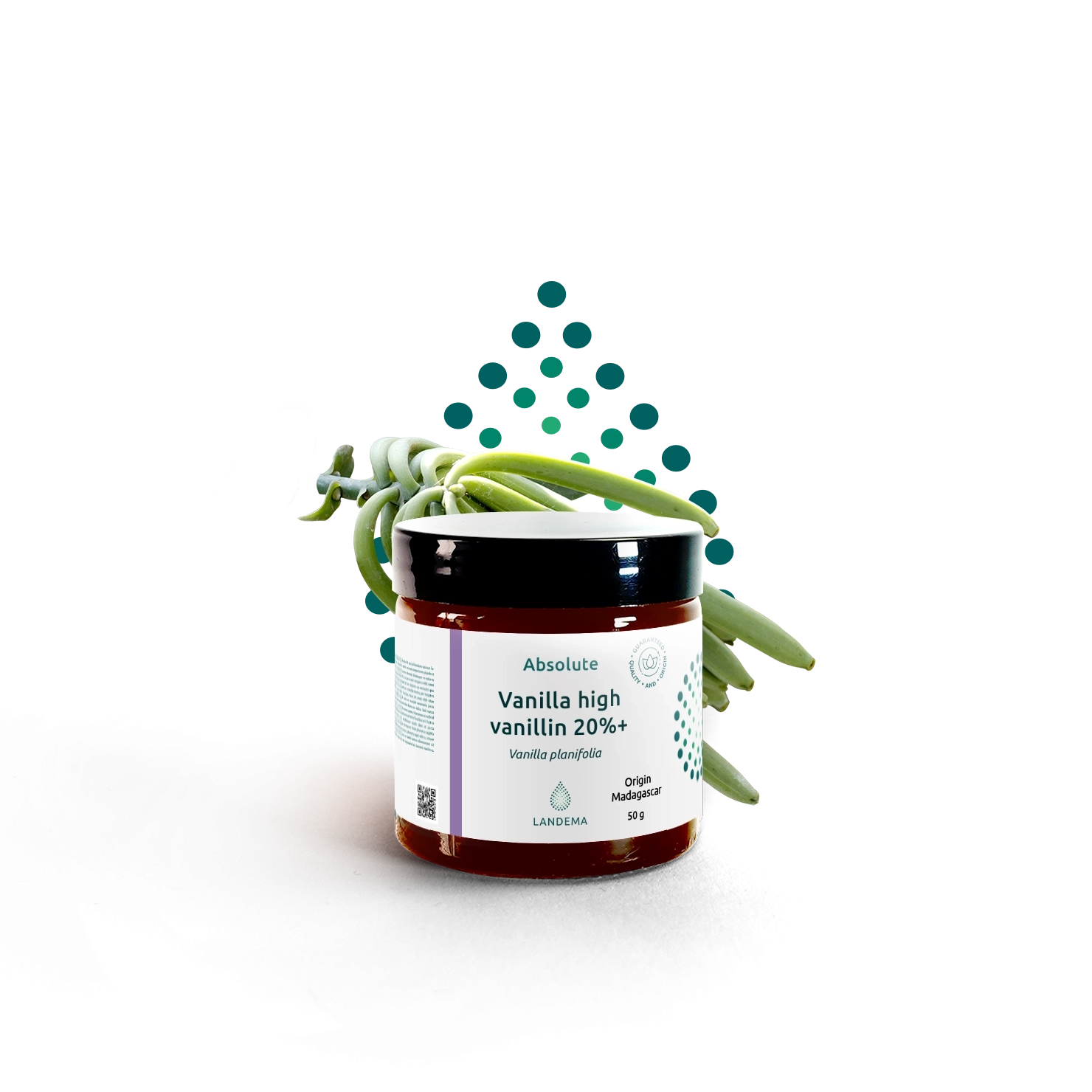
Vanilla high vanillin 20%+
Absolute
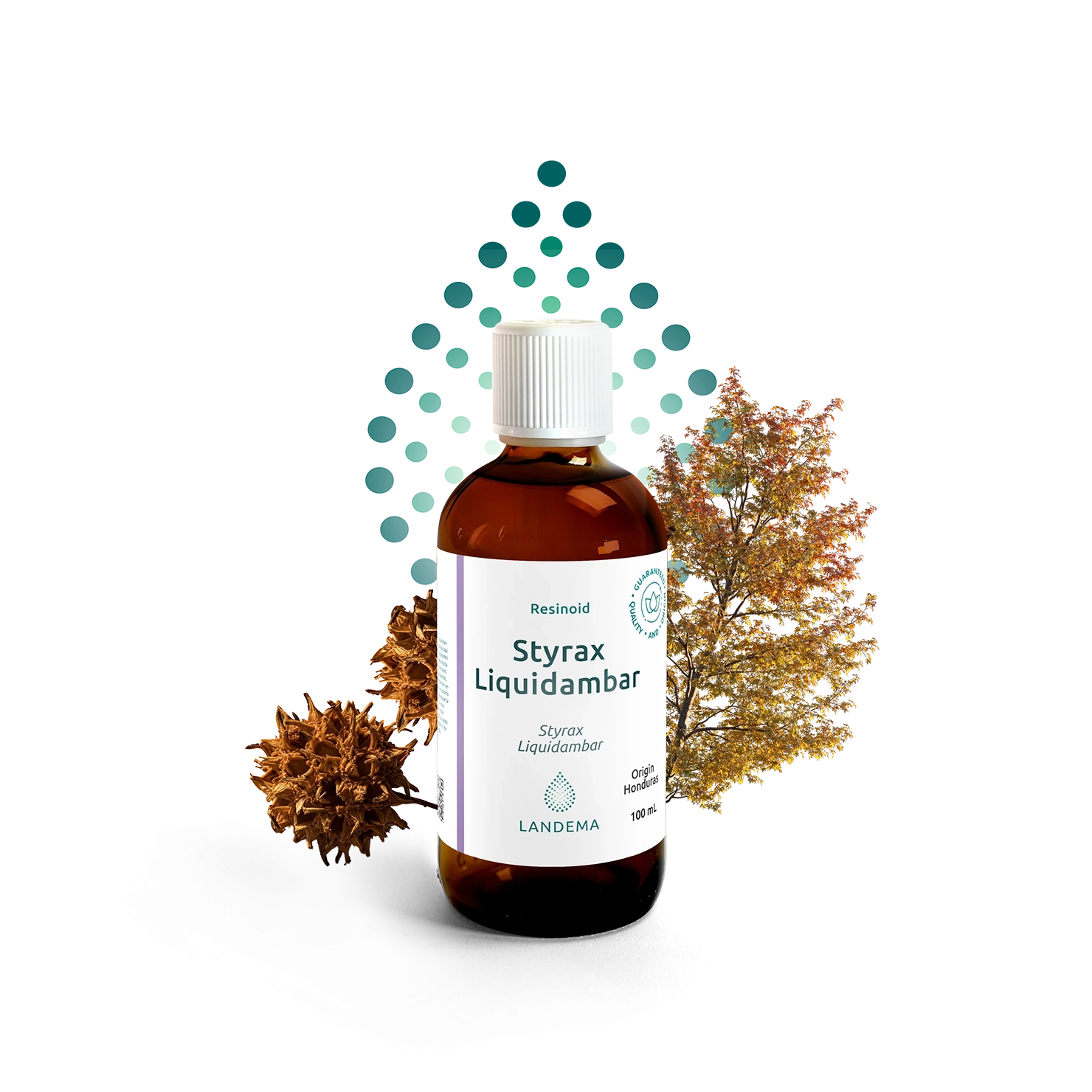
Styrax Liquidambar
Resinoid
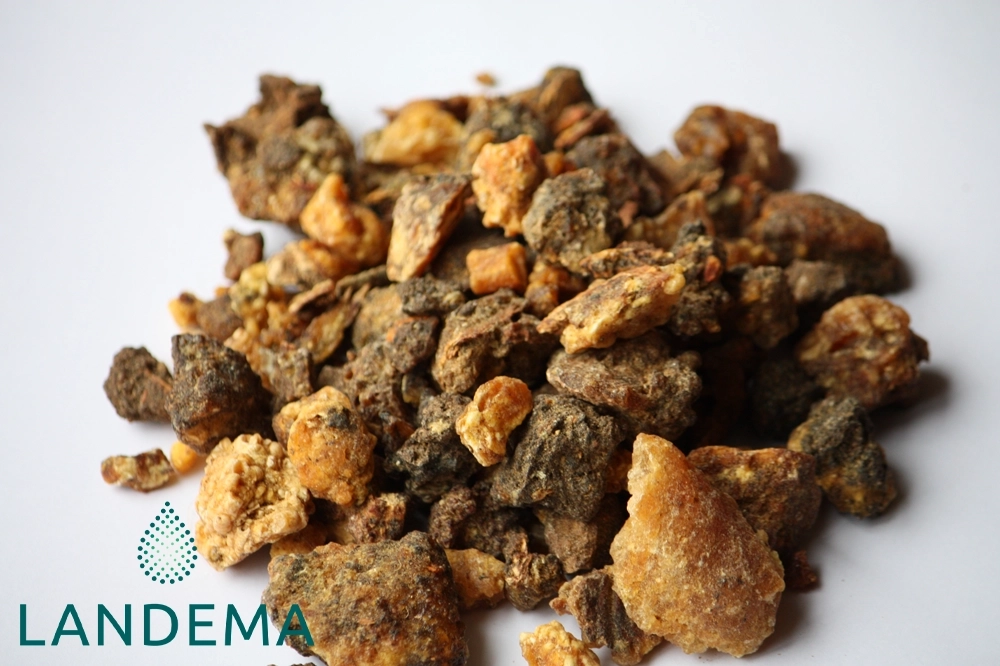
Opoponax washed resinoïd
Resinoid
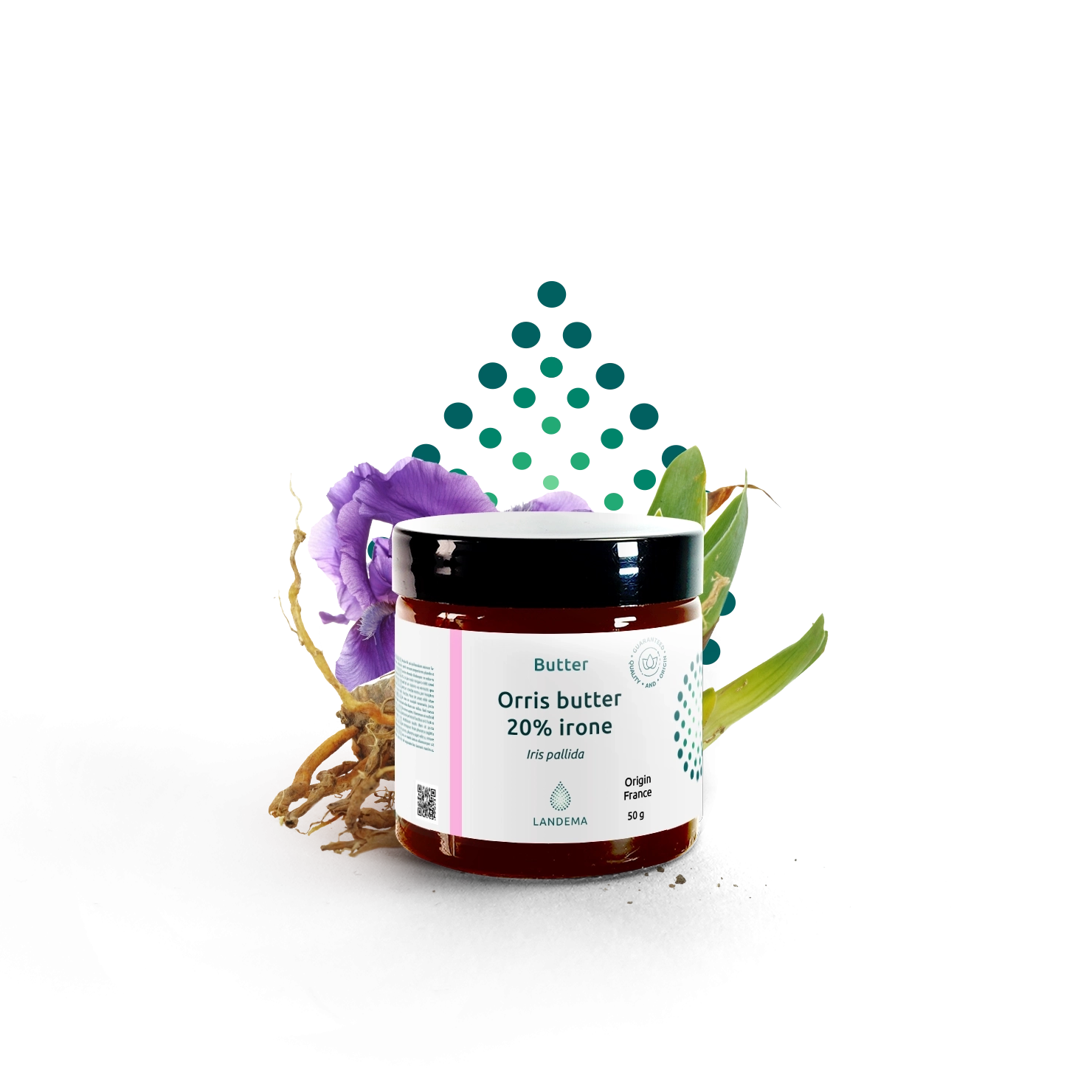
Orris butter 20% irone
Butter
Your wishlist
Secure payment

